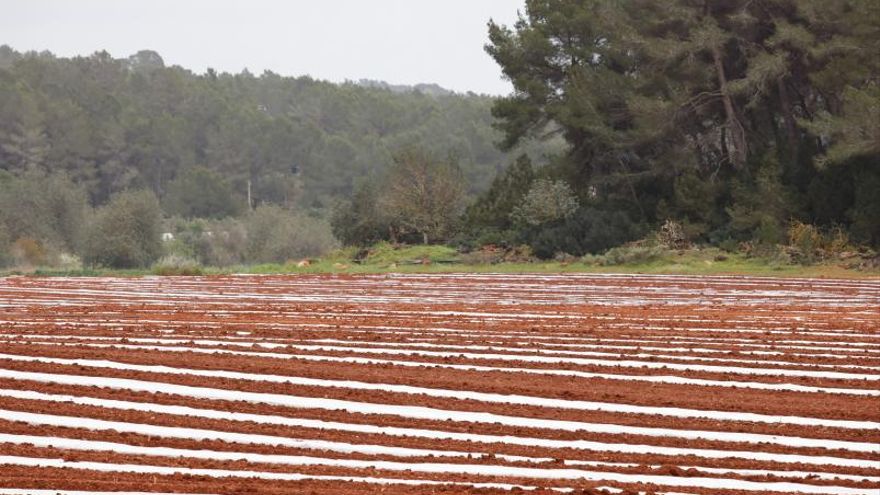Juan Antonio Prats, manager of the Sant Antoni Agricultural Cooperative, is delighted with the rainfall that, for the last two weeks, has been sweeping the Pitiusas: “These rains are very good. It was so needed”. It is necessary “because we are in pre-alert for drought”, he emphasizes when asked why: “It is good for the grains that have already been sown; also so that the land absorbs water, which is very dry, and the aquifers are filled”.
And although it “annoys” some, especially those who had to sow, “the benefit is greater than the harm because what we need now is for the aquifers to recover”. Recdntly planted potatoes “are doing very well because it has not rained. Catastrophic floods would be very damaging, but this is not the case. It rains well, the soil absorbs what falls. The farmers are happy. Of course, “they are at a standstill”, annoyed, because they cannot work: “The fields are unworkable, but they were more worried when it was not raining”.
“In the field the rain is always appreciated,” says Maribel Juan, president of Apaeef (Association of Producers of Organic Agriculture of Ibiza and Formentera): “Now we are at the beginning of the summer crops planting period, so the weather has slowed down the planting. As everything is wet, you can’t go in to sow. But since everything is ready, soon, when it subsides, we will be able to plant.”
Good for fodder
The rainfall is ideal, above all, for fodder and cereals. It is very important, she stresses, that this sowing “goes well because it is used for animal feed, especially now that we are in need of this material, made more expensive by the war and transport”. Apaeef promotes self-production and food sovereignty, “not only for people, increasing planting on the islands, but also for animals”. With self-production, “the price peaks we have been experiencing lately could be avoided, so that we would not depend so much on the consumption of products from abroad”, she says.
The president of Agroeivissa, Iván Colomar, is also delighted with the rain: “It was very necessary, although not much water has fallen. A pity it didn’t rain more”.
Before the rainfall, irrigation farmers were “in the middle of the sowing season, which began in February. The water has put a stop to it”. They will remain stopped for “at least a week or 10 days”. “We had already planted potatoes and started with watermelons, melons, peppers… Now I was supposed to receive tomatoes, but I still have melons that I have not been able to plant. Everything will be delayed a little bit.
This rain is, however, “perfect for cereals and fodder” , as well as for trees such as carob and almond trees
This rain is, however, “perfect for cereals and fodder“, as well as for trees such as carob and almond trees, this farmer assures.
Colomar is concerned about the extra cost of inputs, which “have shot up 20%”, mostly because of the uncertainty of not knowing “how long” this situation will last. He doubts that the high input inflation could have an impact on food “because the consumer would not be able to afford it”.
For the full article, please visit Diario de Ibiza website here.


